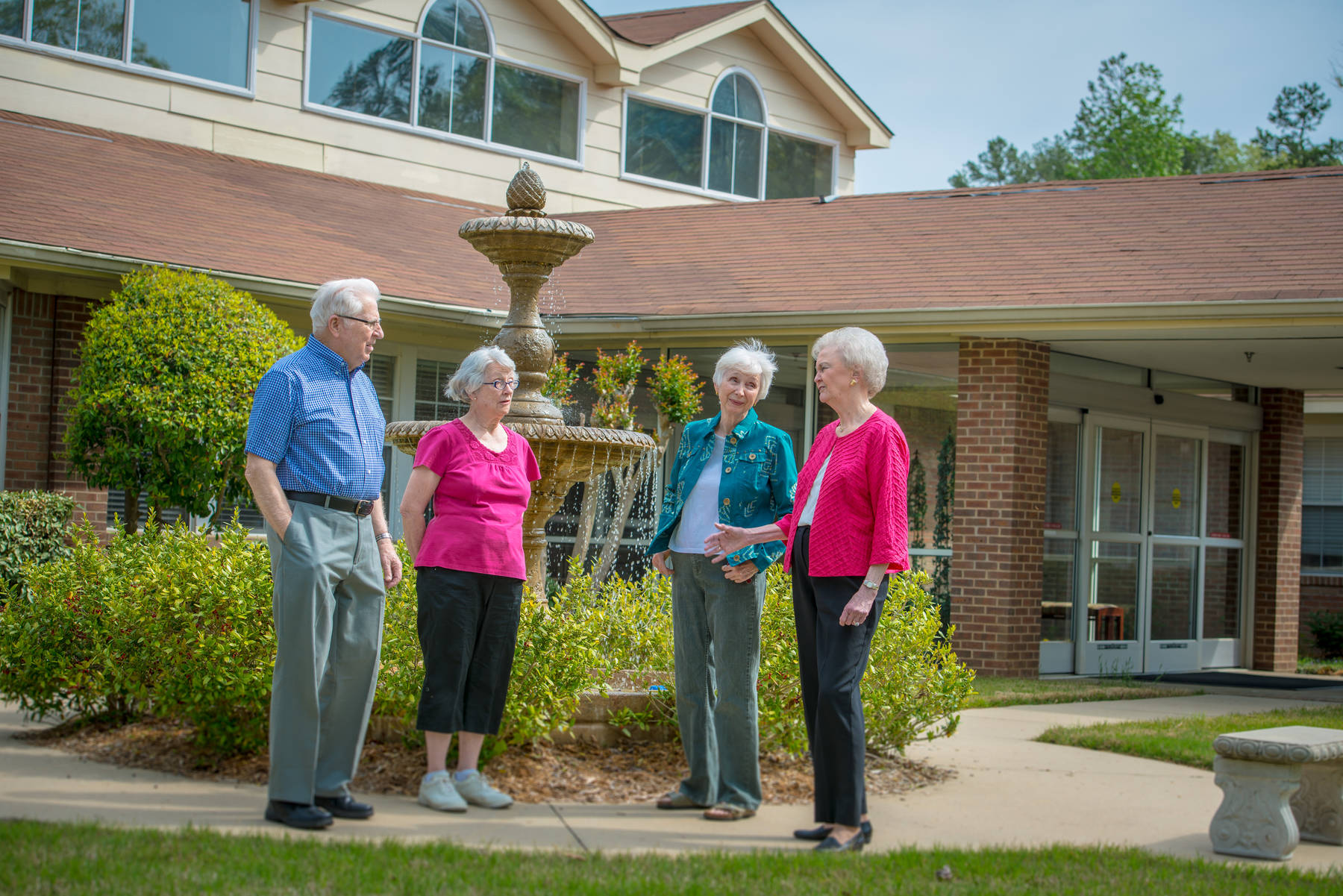By Randy Brantley, Chaplain, Parkway Village
“Listen to Me, O house of Jacob,
And all the remnant of the house of Israel,
Who have been upheld by Me from birth,
Who have been carried from the womb:
Even to your old age, I am He,
And even to gray hairs I will carry you!
I have made, and I will bear;
Even I will carry, and will deliver you.”
Isaiah 46:3-4 (NKJV)
When memories fade, one still needs spiritual care. Offering support to a parent or spouse when they struggle with memory loss can cause one to come face to face with an avalanche of emotions. These emotions are hard to express and when suppressed can lead to feelings of helplessness and isolation. Family and friends who are aware of the needs and struggles of persons living with dementia can be helpful in adding meaning to the lives of the patient and the caregiver.
Effective spiritual care begins with asking, “How are you feeling today?” and then listening. Remember, in the early stages, a person with Alzheimer’s disease wants us to know they are still the same person they were before their diagnosis. They just need extra support and understanding from family and friends.
Tom and Jane’s Story
Tom had worked hard his adult life, looking forward to a long, happy retirement. He had reached the age where he could retire but still enjoy life for many years to come. He had a successful career, raised his family, been faithful to his wife, Jane, and now, as a new retiree, he was excited about finally arriving at the prime of life.
The first two years of retirement were fun, filled with travel and adventure. He and Jane kept no schedule, doing what they wanted when they wanted and enjoyed life. But then health problems arose.
First, Tom developed hearing issues, followed by feelings of uncertainty as to how well people understood what he was trying to say. Then Jane began to notice Tom’s confused look when sorting out his morning and evening medications. Finally came the routine checkup where Tom was asked to update his personal information. He did fine with his name, but that second and third line gave him pause, and he sat and tapped the ink pen on the form as if he was trying to recall something he once knew. Jane noticed his struggle and asked, “Tom, do you need help with one of the questions?”
Pride almost caused him to say no, but then he looked up at her and said, “I cannot remember our address.”
Sadly, this event marked the start of Tom’s loss of memory. At first he was still able to care for himself physically, but over time his memory loss increased and he needed more and more help. Even while his physical and mental condition deteriorated, his wife faithfully cared for him.
The Adult Children React
The adult children responded with fear and denial that dad was struggling with dementia. Their fear spiraled out of control as they struggled with the reality that the dad they knew was disappearing.
These fears led to interpersonal relationship mistakes with their mom. Secretly the adult kids met to discuss “what to do with dad and mom.” Mom felt emotional hurt as the adult kids treated her like she had dementia, too. As primary caregiver to Tom, Jane felt alone, tired, confused, and distant from their children. She desperately wanted them to work with her and not against her in selecting the best plan of care for Tom.
As a result, misunderstanding and confusion ruled the family discussions until a tearful and emotional breaking point came. As their daughter sat beside Jane to comfort her, Jane exclaimed, “Don’t tell me what I need! I know what I need. Please ask me what I need and how we can go about providing it.” She continued, “I feel overwhelmed with all the care your dad needs, and I just need someone to help me get meals on the table for us to eat.”
Suddenly, the right question opened the eyes of the daughter as to what Jane needed. She began to help meet a need by coming over on the weekends and helping prepare a week’s worth of meals.
How You Can Provide Spiritual Care
Most people will care for a loved one at some point in their lives. This may mean helping a family member or friend with tasks such as providing rides to medical appointments, doing grocery shopping, looking after legal and financial matters, and assisting with medications. If you are in a caregiver role, or know someone who is, following are ways you can help a family living with dementia and provide spiritual care.
- Stay in touch. A card, call, or visit can show you care.
- Be patient. Adjusting to Alzheimer’s is an ongoing process.
- Offer a shoulder to lean on. Your support and friendship is a huge gift to a family.
- Include the person with dementia in the conversation. It is important to engage the person even as his or her communication skills decline. Make eye contact and talk to them. Never shame the person. Do not take them down memory lane as they may get lost. If they get agitated do not try to talk them out of the agitation; change the subject. You will find other communication suggestions in this article.
- Invite family members to join you in leisure activities. Go for a walk together.
- Offer a reprieve. For example, spend time with the person living with dementia so family members can enjoy time away.
Most importantly, God cares for each of us, and He can use us to provide spiritual care to a fellow human being. Will you be sensitive to those around you and allow God to use you to make a difference today?
Caregivers can also benefit from attending a support group where they’ll find others in similar situations. Parkway Village sponsors a support group that meets the second Tuesday of each month. You can find more information about it here.

